The continual development of skills is critical to advance our research. Whether you are a student, researcher or academic, the world we live in is moving fast and methods, tools, and best practices are continually evolving. Training and skills development opportunities come in many forms: formal education, summer/winter schools, one-off courses, short-courses, longer-term programmes etc. These opportunities come with a credential status: a qualification (credential), a micro-credential (building blocks towards something more substantial) or non-credentials.
Below we have collated training and skills development opportunities from across the University of Cambridge. This list is not exhaustive and we will be adding to this when new opportunities become available. Please get in touch to add to this list.
Short-courses, one-off programmes, summer/winter schools
Accelerate Programme for Scientific Discovery
Accelerate Programme for Scientific Discovery holds a number of summer/winter schools each year, and other learning opportunities. Example opportunities include:
- Data Pipelines for Science
- Data Science Residency
- AI Clinic
C2D3 Data Science and Machine Learning Senior Teaching Associate
The C2D3 Data Science and Machine Learning Senior Teaching Associate designs relevant training courses through the Bioinformatics Training Facility. Don't be fooled by the name, they run a wide range of courses suitable for audiences from across the whole University. More courses are being developed and delivered, so keep checking to see what is on offer. All of the courses can be found and booked through training.cam.ac.uk. Examples of the courses available:
- High Performance Computing: An Introduction
- Managing your Research Data
- An Introduction to Machine Learning
- Introduction to Statistical Analysis
Cambridge Centre for AI in Medicine
Cambridge Centre for AI in Medicine runs an annual summer school, typically online.
- AI and Machine Learning in Healthcare Summer School
Cambridge Digital Humanities
Cambridge Digital Humanities run a portfolio learning opportunities, including short courses, workshops, and data schools. Some of the courses can be found and booked through training.cam.ac.uk. Examples of the courses available:
- CDH Methods | Machine Learning Systems: a critical introduction
- CDH Methods | Making Meaning out of Data: Machine Learning for Humanities Research
- CDH Methods | Best Practices in Coding for Digital Humanities
- Short Cultural Heritage Data School
Research Computing Services
Research Computing Services occasionally provides one-off courses. A recent course explored the challenges of programming for heterogeneous high performance systems. Please contact Research Computing Services for more information.
Social Sciences Research Methods Programme
Social Sciences Research Methods Programme (SSRMP) provides tutor-led courses SSRMP is an interdisciplinary programme with a wide range of support for staff and postgraduate students. All of the courses can be found and booked through training.cam.ac.uk. Examples of the courses available:
- Data Visualisation Using Python
- Introduction to R
- Exploratory Data Analysis and Critiques of Significance Testing
University Information Services
University Information Services provides self-paced and tutor-led courses that can be found and booked through training.cam.ac.uk. Examples of the courses available:
- Accelerate Research with Google Cloud
Material from formal education and workshops
Teaching material from Cambridge's formal education programmes are available for all to access. Some examples are gathered below:
- Cambridge Engineering/PartIA-Computing-Michaelmas
- Machine Learning and Bayesian Inference
- Machine Visual Perception
- Natural Language Processing
- Practical Research in Human-centred AI
- Probabilistic Machine Learning 4f13
- Machine Learning and the Physical World, Advanced Data Science, Advanced topics in Machine Learning, DeepNN: Deep Neural Networks - and much more, all here provided by Professor Neil Lawrence.
Auditing courses: A comprehensive list of MPhil and PhD programmes, including CDTs and DTPs are listed on our website. Some of the programmes may be available to audit and as such their learning materials can be accessed. If this is of interest to you, you may wish to contact the programme lead.
Workshop material from previous events are available for all to access. Some examples are gathered below:
Modelling, Analysis and Inference for Digital Twins session as part of the The mathematical and statistical foundation of future data-driven engineering workshop, Isaac Newton Institute for Mathematical Sciences (2023).
External training resources
The Turing Online Learning Platform is a free and open learning research for data science and AI topics, from The Alan Turing Institute.
 Cambridge Centre for
Cambridge Centre for